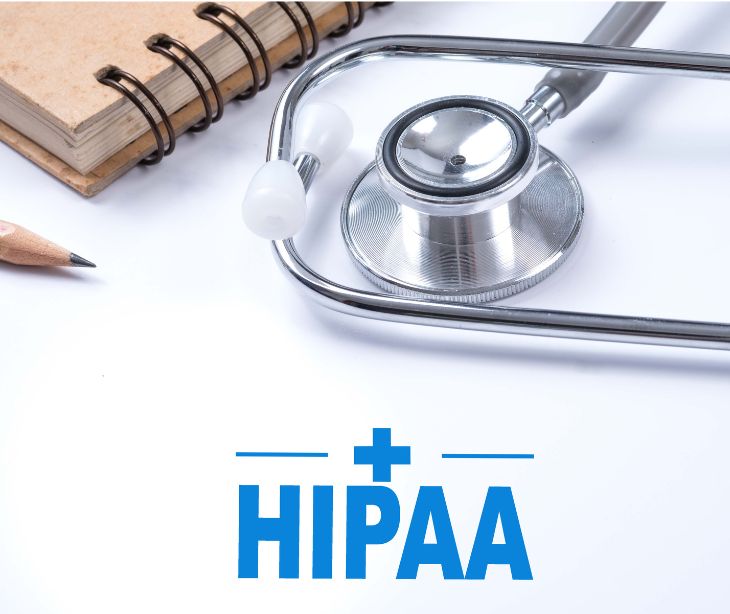
HIPAA protects sensitive mental health information so patients can get treatment without fear of privacy breaches and overcome barriers to mental health care.
Mental health in the U.S.
Mental health issues affect a large portion of the U.S. population, with more than 1 in 5 adults living with a mental illness, according to the Centers for Disease Control and Prevention (CDC).
These “include mental disorders and psychosocial disabilities as well as other mental states associated with significant distress, impairment in functioning, or risk of self-harm,” as recognized by the World Health Organization (WHO).
Yet, the American Psychiatric Association (APA) states that “more than half of people with mental illness don't receive help for their disorders [because of] stigma, prejudice, and discrimination.”
HIPAA and mental health information
According to the HHS guidance on sharing mental health information, “Ensuring strong privacy protections is critical to maintaining individuals’ trust in their health care providers and willingness to obtain needed health care services, and these protections are especially important where very sensitive information is concerned, [like] mental health information.”
So, HIPAA's protections extend to all forms of mental health information, whether shared verbally, in writing, or electronically, during therapy sessions, psychiatric evaluations, or any other mental health treatment.
Related: How HIPAA compliance improves patient trust
HIPAA’s Privacy Rule
Providers must keep mental health information confidential, disclosing it only to those who have a legitimate need to know for treatment, payment, or healthcare operations purposes.
The HHS explains that HIPAA’s Privacy Rule “recognizes circumstances arise where health information may need to be shared to ensure the patient receives the best treatment and for other important purposes, such as for the health and safety of the patient or others.”
Moreover, “The Rule is carefully balanced to allow uses and disclosures of information—including mental health information—for treatment and these other purposes with appropriate protections.”
Ultimately, it protects patients' privacy and supports their overall well-being by restricting access and ensuring appropriate use of mental health information.
Minimum necessary standard
Providers must only collect and disclose the minimum necessary information needed to reduce the risk of exposing unnecessary details about a patient's mental health.
For example, if a patient needs a referral to a specialist, the provider should only share relevant information related to the referral and not disclose unrelated personal details, like the patient's family history or past traumas.
Patient consent
Patients must provide explicit consent before their mental health information can be shared for purposes other than treatment, payment, or healthcare operations.
Furthermore, HIPAA allows patients to revoke consent at any time, giving them control over who has access to their mental health information.
HIPAA’s Security Rule
The HIPAA privacy rule mandates that covered entities implement administrative, technical, and physical safeguards to protect the confidentiality, integrity, and availability of protected health information (PHI).
More specifically, HIPAA compliant platforms, like Paubox, use encryption to secure PHI in transit and at rest, preventing unauthorized access to mental health information. These platforms also offer audit controls and monitoring systems to track access to PHI and detect potential security breaches in real-time.
Breach Notification Rule
HIPAA’s Breach Notification Rule requires covered entities and their business associates to notify affected individuals, the HHS, and in some cases, the media, within 60 days after discovering a PHI breach.
Timely notification helps patients make informed decisions about safeguarding their information to protect themselves and minimize potential harm.
Patients can also get legal assistance to help them navigate legal processes and potentially seek compensation for damage caused by the breach.
Furthermore, it holds organizations accountable for their negligence and promotes transparency in healthcare data security.
Go deeper: How healthcare organizations can balance privacy and transparency in patient communication
FAQs
Who must comply with HIPAA?
Healthcare providers, health plans, healthcare clearinghouses, and their business associates, including those handling mental health information, must comply with HIPAA.
What is PHI?
Protected health information (PHI) is any information about health status, healthcare provision, or payment for healthcare that can be linked to an individual, including mental health records.
What rights do patients with mental health conditions have under HIPAA?
Patients have the right to access their mental health records, request corrections, receive an accounting of disclosures, and request restrictions on certain uses and disclosures.
Go deeper: FAQs: Patient rights under HIPAA
Subscribe to Paubox Weekly
Every Friday we'll bring you the most important news from Paubox. Our aim is to make you smarter, faster.




